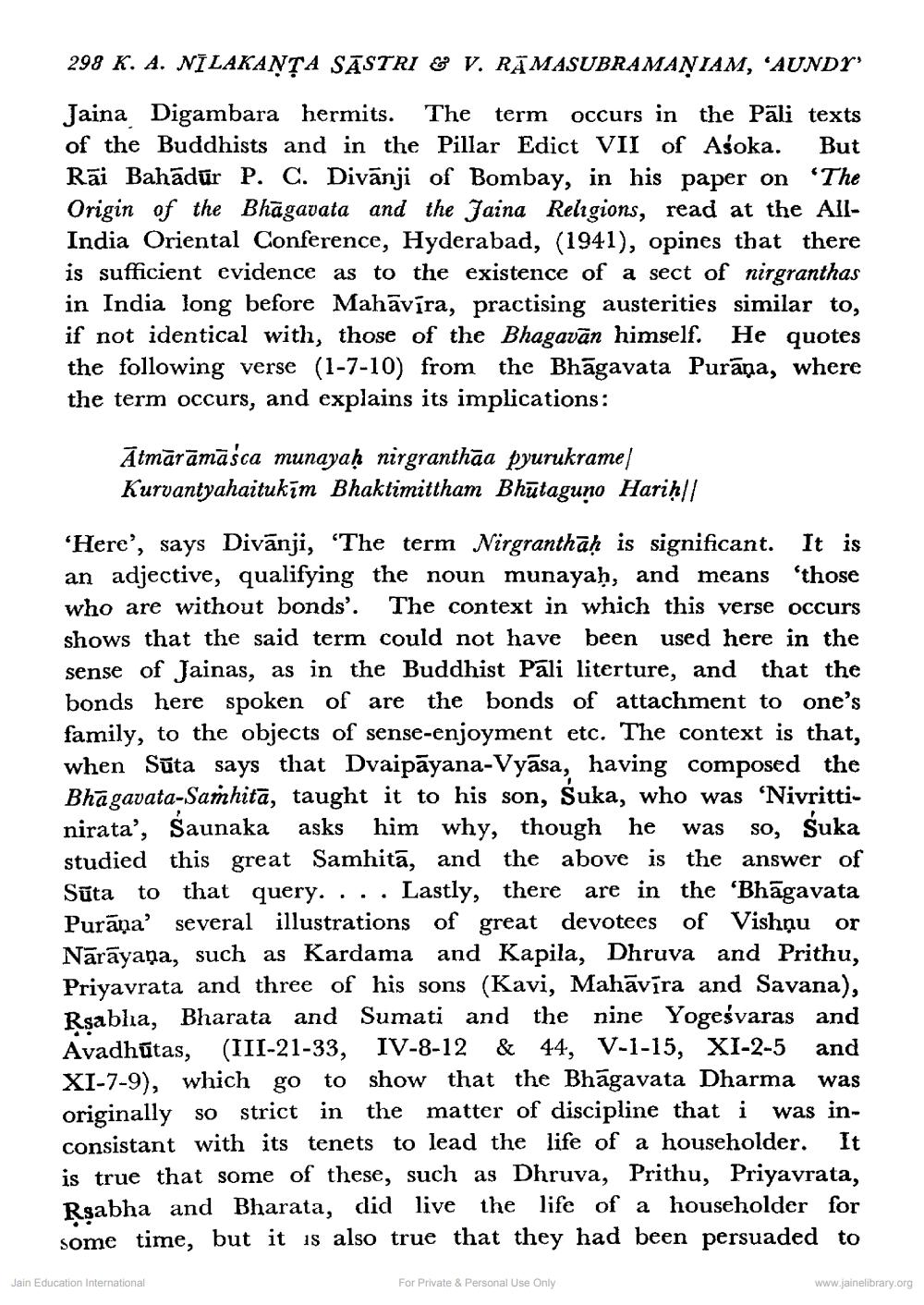________________
298 K. A. NĪ LAKANȚA SASTRI & V. RĀMASUBRAMANIAM, 'AUNDY' Jaina Digambara hermits. The term occurs in the Pāli texts of the Buddhists and in the Pillar Edict VII of Asoka. But Rāi Bahādūr P. C. Divānji of Bombay, in his paper on 'The Origin of the Bhagavata and the Jaina Religions, read at the AllIndia Oriental Conference, Hyderabad, (1941), opines that there is sufficient evidence as to the existence of a sect of nirgranthas in India long before Mahāvīra, practising austerities similar to, if not identical with, those of the Bhagavān himself. He quotes the following verse (1-7-10) from the Bhāgavata Purāņa, where the term occurs, and explains its implications:
Ātmārāmāśca munayaḥ nirgranthāa pyurukramel Kurvantyahaitukīm Bhaktimittham Bhūtaguno Hariḥ//
'Here', says Divānji, "The term Nirgranthāḥ is significant. It is an adjective, qualifying the noun munayaḥ, and means 'those who are without bonds'. The context in which this verse occurs shows that the said term could not have been used here in the sense of Jainas, as in the Buddhist Pali literture, and that the bonds here spoken of are the bonds of attachment to one's family, to the objects of sense-enjoyment etc. The context is that, when Sūta says that Dvaipāyana-Vyāsa, having composed the Bhagavata-Samhita, taught it to his son, Suka, who was 'Nivrittinirata', Saunaka asks him why, though he was so, Suka studied this great Samhitā, and the above is the answer of Sūta to that query. . . . Lastly, there are in the 'Bhāgavata Purāņa' several illustrations of great devotees of Vishņu or Nārāyaṇa, such as Kardama and Kapila, Dhruva and Prithu, Priyavrata and three of his sons (Kavi, Mahāvīra and Savana), Rsabha, Bharata and Sumati and the nine Yogesvaras and Avadhūtas, (111-21-33, IV-8-12 & 44, V-1-15, XI-2-5 and XI-7-9), which go to show that the Bhāgavata Dharma was originally so strict in the matter of discipline that i was inconsistant with its tenets to lead the life of a householder. It is true that some of these, such as Dhruva, Prithu, Priyavrata, Rsabha and Bharata, did live the life of a householder for some time, but it is also true that they had been persuaded to
Jain Education International
For Private & Personal Use Only
www.jainelibrary.org




